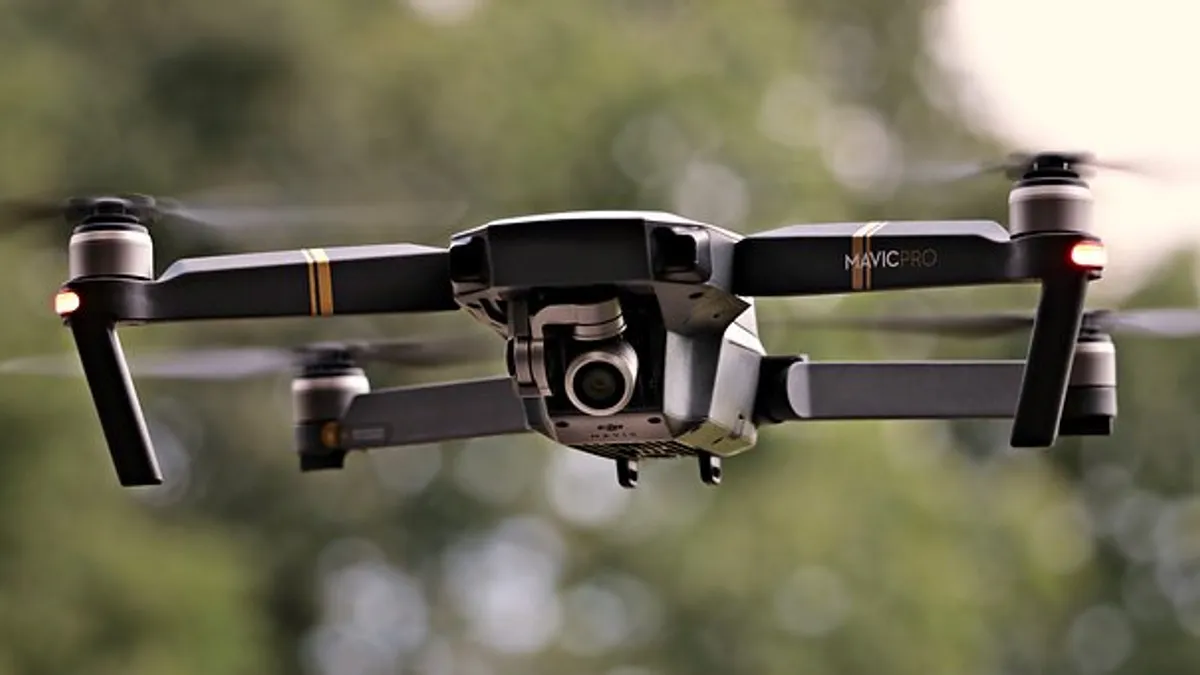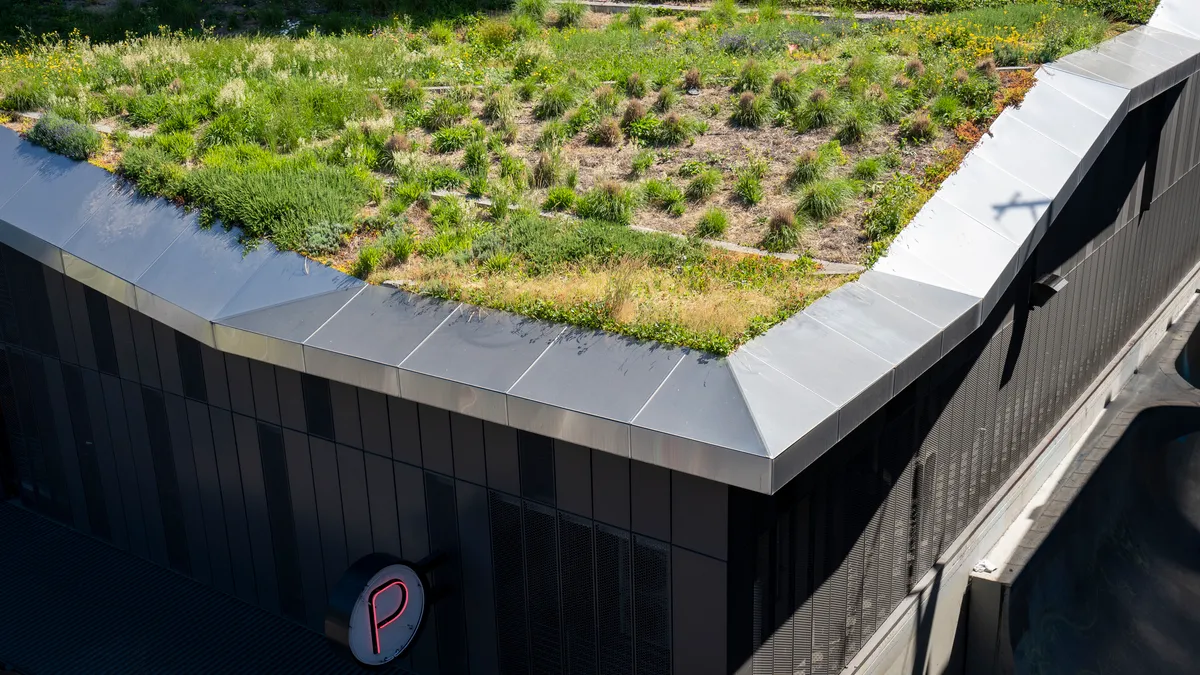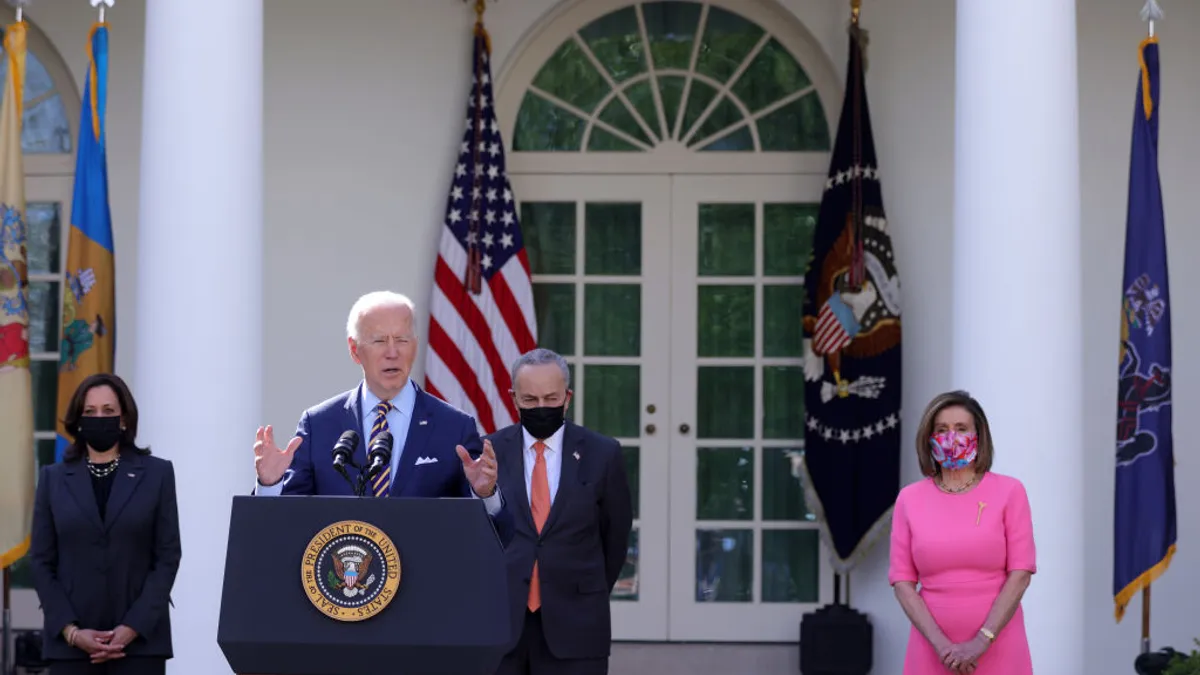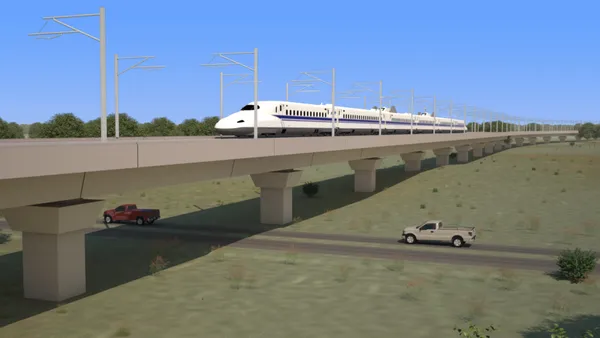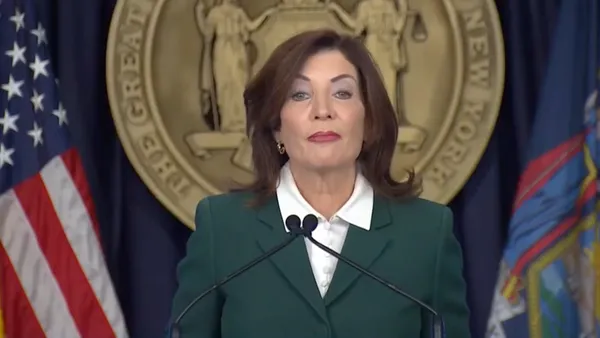Dive Brief:
- Following up on the White House's drone initiative last month, states and local governments may now begin expanding drone operations, The Hill reports.
- The Department of Transportation laid out the timeframe and requirement of the new drone program on Thursday, which seeks to encourage innovation "while maintaining safety for the communities involved" through a three-year initiative.
- In the next 20 days, communities must submit a "Notice of Intent" to the Federal Aviation Administration, and submit an application within 57 days. Applications approved by the FAA could begin drone operations within 180 days, or as late as next May. At least five communities will be approved, according to the DOT.
Dive Insight:
Despite years of regulatory delays predicated on population density and privacy issues, President Donald Trump's recent directive opened the floodgates for communities looking to take advantage of drone programs. From warehouses to disaster relief sites or package delivery, communities have been clamoring for federal guidance permitting the unmanned aerial vehicles, with many localities taking matters into their own hands. However, such a stopgap approach has created regulatory challenges for the government.
"The integration of drones into our national airspace will be the biggest technical challenge to aviation since the beginning of the Jet Age," Transportation Secretary Elaine Chao said in a press release announcing the initiative. "This program will help prepare the way for this new technology, and usher in a new era of aviation service, accessibility, and capability.”
By encouraging local communities to submit individual, regulatory proposals, the federal government is openly requesting ideas for how best to regulate the vehicles. Under the three-year program, the FAA will analyze data on different types of programs to then decide what rules could work on a national level.
According to a recent report by the American Association for Unmanned Vehicle Systems, drones are projected to create 70,000 jobs and have a $13.6 billion economic impact within the first three years of their implementation. By 2025, those numbers would grow to 100,000 jobs, and $82 billion.
The newest initiative speeding drone adoption and federal oversight seeks to advance those benefits nationwide, using a few communities as test cases.


